 312-704-0771
312-704-0771
Recent Blog Posts
How Much Can Creditors Collect From Debtors Through Wage Garnishment?
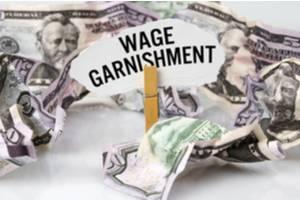 When debtors fail to repay the debts they owe, creditors have a number of options for collecting these debts. If a creditor is able to secure a judgment against a debtor, they may then take action to pursue repayment of the debt. One of the best ways of doing so is through wage garnishment. By having a certain amount deducted from the debtor’s wages on an ongoing basis, a creditor will receive regular payments toward the amount that is owed. However, creditors will need to understand the limits that apply in these cases, and they will need to calculate the maximum amount that may be garnished from a person’s wages.
When debtors fail to repay the debts they owe, creditors have a number of options for collecting these debts. If a creditor is able to secure a judgment against a debtor, they may then take action to pursue repayment of the debt. One of the best ways of doing so is through wage garnishment. By having a certain amount deducted from the debtor’s wages on an ongoing basis, a creditor will receive regular payments toward the amount that is owed. However, creditors will need to understand the limits that apply in these cases, and they will need to calculate the maximum amount that may be garnished from a person’s wages.
Wage Garnishment Under the CCPA
Federal laws detail the amounts that creditors may be able to receive from debtors through a wage garnishment order. These limits are specified in Title III of the Consumer Credit Protection Act (CCPA). This law states that deductions may be taken from a debtor’s disposable earnings, which is their income after all legally required deductions have been taken, including federal and state income taxes, Social Security taxes, and any retirement contributions that are required by law.
UPDATED: Six Reasons to Object to a Chapter 13 Bankruptcy Plan
 Originally published: January 25, 2018 -- Updated: April 25, 2022
Originally published: January 25, 2018 -- Updated: April 25, 2022
UPDATE: In addition to understanding the situations where it may be possible to object to the confirmation of a Chapter 13 repayment plan, creditors will need to know the procedures that will need to be followed in these cases. If valid objections are made, a debtor may be required to file an amended plan, and in some cases, a bankruptcy case may be dismissed altogether.
Generally, creditors must make objections to a repayment plan at least seven days before the date of the confirmation hearing where the court will make a decision on whether to approve the proposed plan. Oral objections may be made at the first meeting of creditors (the 341 hearing), or written objections may be filed with the court. If no objections are made within the required time limits, the plan will be considered to have been filed in good faith, and it will usually be approved.
Can a Debtor’s Preferential Payments Be Recovered During Bankruptcy?
 When a debtor files for bankruptcy, the person’s creditors will be understandably concerned about how this may affect their ability to recover the amounts owed to them. While the bankruptcy process will usually allow creditors to receive some of what is owed, there are a variety of issues that may result in creditors receiving less than they should. Preferential payments made by debtors can be a significant issue in these cases, and improper actions by debtors may result in some creditors being treated unfairly. If a creditor believes that a debtor has made preferential payments, they will want to determine how they can address this issue and ensure that these payments will be recovered so that assets seized during bankruptcy will be properly distributed to all creditors.
When a debtor files for bankruptcy, the person’s creditors will be understandably concerned about how this may affect their ability to recover the amounts owed to them. While the bankruptcy process will usually allow creditors to receive some of what is owed, there are a variety of issues that may result in creditors receiving less than they should. Preferential payments made by debtors can be a significant issue in these cases, and improper actions by debtors may result in some creditors being treated unfairly. If a creditor believes that a debtor has made preferential payments, they will want to determine how they can address this issue and ensure that these payments will be recovered so that assets seized during bankruptcy will be properly distributed to all creditors.
Elements of Preferential Payments
When filing for bankruptcy, debtors are prohibited from giving preferential treatment to one creditor over other types of debts they owe. Preferential payments made to a creditor prior to when a debtor filed for bankruptcy may be “avoided” by the bankruptcy trustee in their case. Creditors may request that the trustee pursue a “clawback” action to recover preferential payments that were made and ensure that all of a debtor’s assets will be properly distributed during the bankruptcy process.
How Can Creditors Defend Against Clawbacks of Preferential Payments?
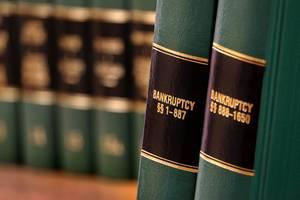 For creditors, recovering money owed by debtors is a primary concern. There are a variety of issues that can affect a creditor’s ability to receive what is owed, especially in cases where debtors file for bankruptcy. Preferential payments to creditors are one issue that may arise in these cases. If a creditor has received payments from a debtor before the debtor filed for bankruptcy, the creditor may be required to turn over some or all of these payments. In these situations, creditors will need to understand their options for defending against “clawback” actions.
For creditors, recovering money owed by debtors is a primary concern. There are a variety of issues that can affect a creditor’s ability to receive what is owed, especially in cases where debtors file for bankruptcy. Preferential payments to creditors are one issue that may arise in these cases. If a creditor has received payments from a debtor before the debtor filed for bankruptcy, the creditor may be required to turn over some or all of these payments. In these situations, creditors will need to understand their options for defending against “clawback” actions.
Understanding Preferential Payments
When filing for bankruptcy, debtors are not allowed to provide preferential treatment to one or more creditors. A payment made to a creditor may be considered a preferential payment if it was made within 90 days before the debtor filed for bankruptcy and while the debtor was insolvent. These payments must be made toward “antecedent” debts that had existed previously, and they must have allowed a creditor to receive a higher payment than what would have been made to them in a Chapter 7 bankruptcy. Since preferential payments are illegal, a bankruptcy trustee may seek to recover some or all of the amount that was paid, or other creditors may pursue clawback actions to ensure that all creditors will be treated fairly during the bankruptcy process.
When Can Creditors Ask for a Bankruptcy Case to Be Dismissed?
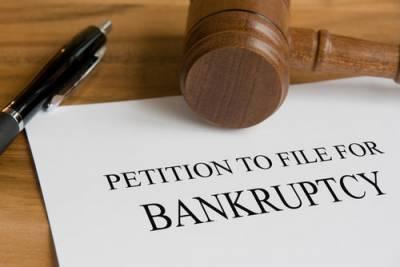 When a debtor files for bankruptcy, this can put creditors in a difficult position. The discharge of a person’s debts will result in creditors not being paid what they are owed. Even if a debtor pursues a Chapter 13 bankruptcy, they will likely only pay off a portion of what they owe, and since certain debts are given priority in these cases, some creditors may be unable to recover a significant percentage of the debts owed to them. However, there are some cases where creditors may be able to request the dismissal of a bankruptcy case, which will allow them to resume collection activities and hold a debtor responsible for the amount they owe.
When a debtor files for bankruptcy, this can put creditors in a difficult position. The discharge of a person’s debts will result in creditors not being paid what they are owed. Even if a debtor pursues a Chapter 13 bankruptcy, they will likely only pay off a portion of what they owe, and since certain debts are given priority in these cases, some creditors may be unable to recover a significant percentage of the debts owed to them. However, there are some cases where creditors may be able to request the dismissal of a bankruptcy case, which will allow them to resume collection activities and hold a debtor responsible for the amount they owe.
Reasons for the Dismissal of a Bankruptcy Case
In many cases, courts will dismiss bankruptcy cases because debtors fail to meet all of their legal requirements. Creditors may be able to pursue a dismissal in situations such as:
- The debtor failed to file the proper forms and documents - Multiple legal forms must be filed throughout the bankruptcy process, and other information must be submitted within the proper deadlines. If a debtor does not submit a complete list of creditors, fails to file tax returns or submit the tax returns they have filed to the bankruptcy trustee, or does not pay the required filing fees, their case may be dismissed.
How Can Creditors Collect Debts From a Loan’s Co-Signer?
 Creditors take on risk when they loan money to debtors, and they may use a variety of methods to protect their interests and ensure that they will receive the payments owed. In cases where debtors do not have sufficient credit history or where a creditor believes that a person may not be able to repay their debts, a co-signer may provide a guarantee that the amount owed will be paid. In cases where the primary debtor defaults on a loan or files for bankruptcy, creditors will need to understand their options for collecting the debt from the co-signer.
Creditors take on risk when they loan money to debtors, and they may use a variety of methods to protect their interests and ensure that they will receive the payments owed. In cases where debtors do not have sufficient credit history or where a creditor believes that a person may not be able to repay their debts, a co-signer may provide a guarantee that the amount owed will be paid. In cases where the primary debtor defaults on a loan or files for bankruptcy, creditors will need to understand their options for collecting the debt from the co-signer.
When Is a Co-Signer Liable for a Debt?
Generally, creditors are able to collect debts from either the primary borrower or a co-signer. However, they will need to meet the requirements of the laws in their state when collecting from a co-signer. In Illinois, debtors cannot take collection actions against a co-signer unless they notify the co-signer that the primary debtor has defaulted on the loan. This notice must be sent to the co-signer through first-class mail, and a creditor must give the co-signer 15 days after the date the notice was sent to pay the amount owed or make arrangements to do so. If a co-signer does not respond to the notice or fails to take steps to pay what is owed, a creditor may take a number of actions, including notifying credit agencies, contacting the co-signer directly to seek payment or initiating a civil case to collect a money judgment.
What Are a Creditor’s Rights in a Chapter 7 Bankruptcy?
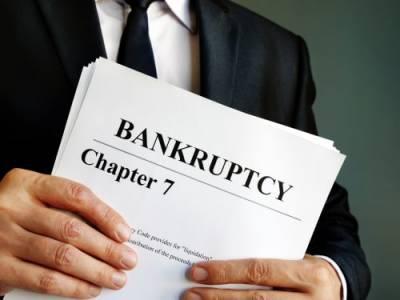 Creditors have multiple options for collecting debts that are owed. However, debt collection efforts may be affected by a debtor’s bankruptcy filing. In cases where a person files for Chapter 7 bankruptcy, certain types of debts may be discharged, preventing a creditor from collecting what is owed. Creditors will want to understand how different types of debts will be affected by a Chapter 7 bankruptcy and how they should proceed in these cases.
Creditors have multiple options for collecting debts that are owed. However, debt collection efforts may be affected by a debtor’s bankruptcy filing. In cases where a person files for Chapter 7 bankruptcy, certain types of debts may be discharged, preventing a creditor from collecting what is owed. Creditors will want to understand how different types of debts will be affected by a Chapter 7 bankruptcy and how they should proceed in these cases.
Creditors’ Rights Regarding Secured and Unsecured Debts
During a Chapter 7 bankruptcy, a debtor’s non-exempt assets will be seized, and these assets will be liquidated. The proceeds received from the sale of assets will be used to repay some or all of what is owed to creditors. However, payments are made in order of priority, and a creditor’s ability to recover what is owed may depend on whether a debt is secured or unsecured.
When Is a Loan Modification Considered a Troubled Debt Restructuring?
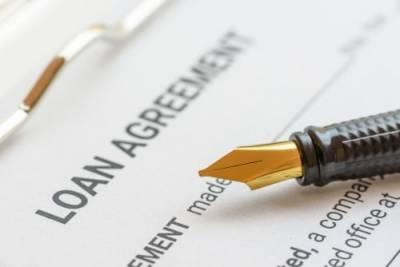 There are a variety of ways that creditors may be able to address delinquent debts. While pursuing foreclosures or repossessions may be the best option in many cases, creditors may be able to mitigate their losses and ensure that debtors will be able to make ongoing payments by negotiating loan modifications. However, in some cases, these modifications may be classified as troubled debt restructurings (TDRs), and they may need to be reported to the appropriate regulatory agencies. By understanding when loan modifications are considered to be TDRs, creditors can ensure that they are in compliance with all applicable laws and regulations.
There are a variety of ways that creditors may be able to address delinquent debts. While pursuing foreclosures or repossessions may be the best option in many cases, creditors may be able to mitigate their losses and ensure that debtors will be able to make ongoing payments by negotiating loan modifications. However, in some cases, these modifications may be classified as troubled debt restructurings (TDRs), and they may need to be reported to the appropriate regulatory agencies. By understanding when loan modifications are considered to be TDRs, creditors can ensure that they are in compliance with all applicable laws and regulations.
What Is a TDR?
Creditors may work with debtors to make multiple types of loan modifications that are meant to help a debtor afford ongoing payments and prevent the default of a loan. A loan modification may be considered a troubled debt restructuring if a borrower has experienced financial hardship and a lender makes concessions that typically would not be made in other situations. While defaulting on one or more payments may be an indication of financial hardship for a debtor, other financial issues that may affect a person’s ability to make payments may also be considered, such as the loss of a job. Concessions that a lender may make may include:
UPDATE: Illinois Suspends Vehicle Repossession by Auto Lenders

Originally published: May 31, 2020 -- Updated: December 28, 2021
UPDATE: While Governor Pritzker’s executive order had placed a halt on vehicle repossessions, this restriction expired on August 22, 2020. For more than a year, auto lenders and other creditors have been able to engage in asset recovery methods and repossess property in cases where debtors have defaulted on loan payments. However, as the COVID-19 pandemic continues to affect people, some creditors may be hesitant to move forward with repossessions, and they may be looking to determine whether other alternatives are available.
In many cases, loan modifications are the best option for helping debtors address missed payments and other issues that affect their ability to repay an auto loan. Creditors may offer modifications such as the forgiveness of late fees, the deferral of missed payments, or the extension of the term of a loan. By providing options to debtors, this may encourage them to continue making ongoing payments and avoid a repossession while minimizing the creditor’s financial losses and the hardship experienced by the debtor.
How Can Creditors Protect Their Rights in a Chapter 13 Bankruptcy?
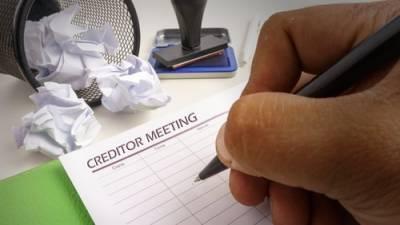 When a debtor who owes money to a creditor defaults on these obligations, the creditor will have a number of options for recovering the amount that is owed. However, debtors have the option to file for bankruptcy, which will affect a creditor’s ability to collect debts. Debtors who have secured debts such as home mortgages or auto loans may pursue Chapter 13 bankruptcy, or they may use this type of bankruptcy to avoid the liquidation of certain assets. A Chapter 13 bankruptcy will create a repayment plan that will allow some of the person’s debts to be repaid over a period of three to five years. In these cases, creditors will need to be sure to understand how they can protect their rights and their ability to recover at least some of the debts that are owed.
When a debtor who owes money to a creditor defaults on these obligations, the creditor will have a number of options for recovering the amount that is owed. However, debtors have the option to file for bankruptcy, which will affect a creditor’s ability to collect debts. Debtors who have secured debts such as home mortgages or auto loans may pursue Chapter 13 bankruptcy, or they may use this type of bankruptcy to avoid the liquidation of certain assets. A Chapter 13 bankruptcy will create a repayment plan that will allow some of the person’s debts to be repaid over a period of three to five years. In these cases, creditors will need to be sure to understand how they can protect their rights and their ability to recover at least some of the debts that are owed.
Priority of Debts in a Chapter 13 Bankruptcy
A Chapter 13 repayment plan will be created based on a debtor’s disposable income. The amount that a person will be able to put toward their repayment plan each month will be calculated by considering all forms of income and subtracting applicable expenses, including taxes, living expenses, utilities, transportation costs, and union dues. The amount remaining will be considered disposable income that the debtor may use to make ongoing payments throughout the entirety of their repayment plan.






